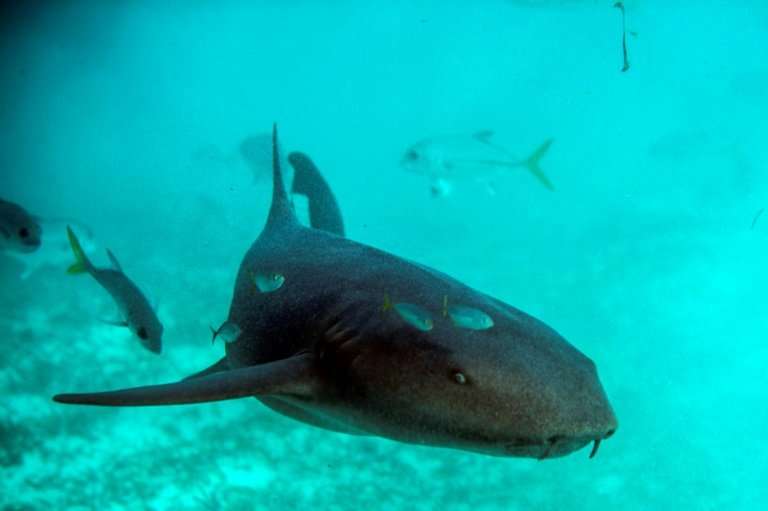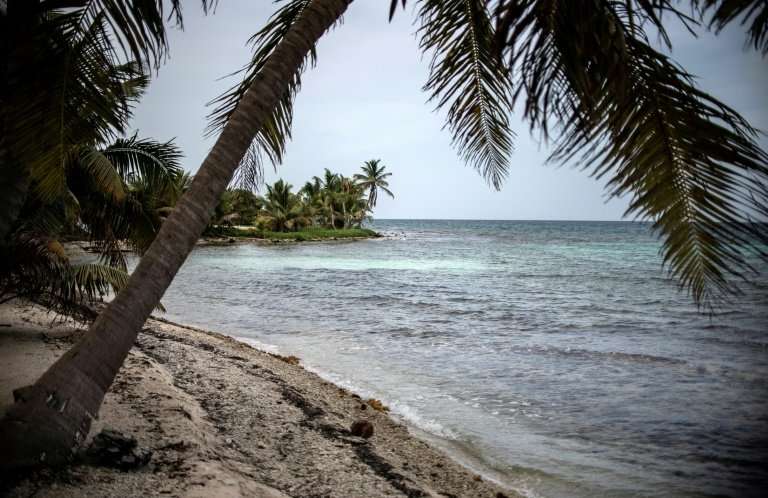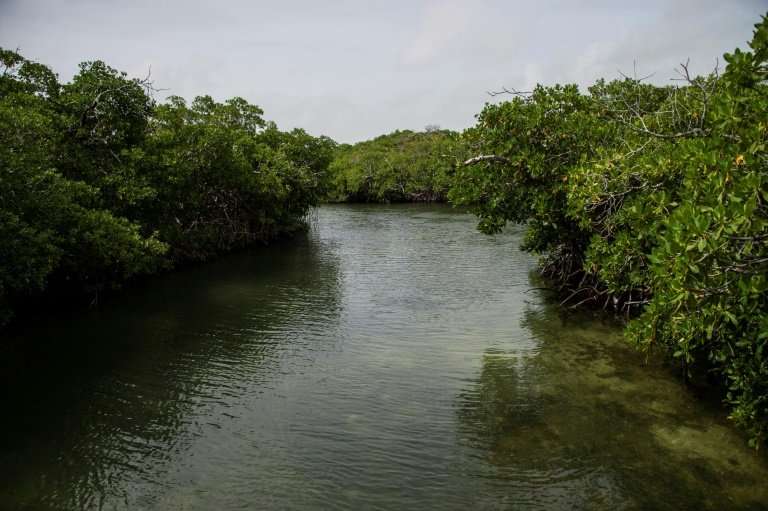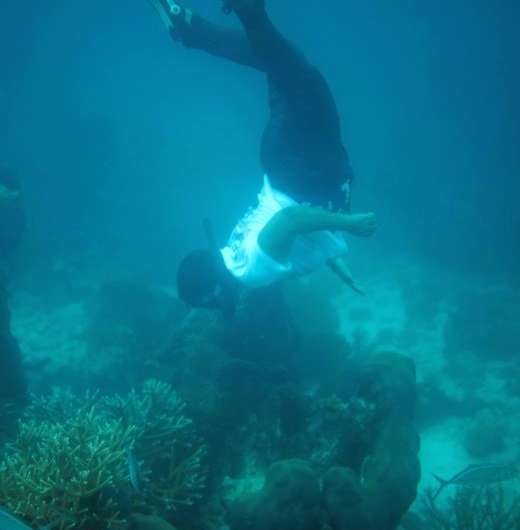A nurse shark swims at the Hol Chan Marine Reserve coral reef in the outskirts of San Pedro village in Belize, on June 7, 2018
Just a stone's throw off the coast of Belize, brightly colored tropical fish mingle with sharks, manta rays and sea turtles around a sprawling reef beneath the bright turquoise waters of the Caribbean.
The Mesoamerican Reef, an underwater wonder world whose survival was considered to be at risk for years, may now be removed from UNESCO's list of threatened World Heritage Sites thanks to bold steps to save it by environmental activists and the Belizean government.
Second in size only to the Great Barrier Reef in Australia, the Caribbean reef was named to the prestigious World Heritage List in 1996, but placed on endangered status in 2009 because of Belize's plans to allow oil exploration nearby and the general lack of laws to protect the site.
The warning also encompassed the mangroves that help protect the reef and serve as a breeding ground for many of the hundreds of fish species that inhabit the area.
That spurred activists into action. They organized an informal referendum in 2012 in which 96 percent of Belizeans voted against offshore oil exploration, choosing the reef over the potential economic gains for the poor Central American country.
As the threat to one of its top tourist attractions began to sink in, the Belizean government adopted a series of laws to protect the reef—notably one in December that places an indefinite moratorium on oil exploration.
The Mesoamerican Reef is expected to be removed from UNESCO's list of threatened World Heritage sites thanks to conservation efforts
It came just in time for this week's UNESCO meeting in Manama, Bahrain, where the UN body is due to consider removing the reef from its list of endangered heritage sites.
Stretching from the tip of Mexico's Yucatan peninsula all the way to Guatemala and Honduras, the reef includes 380 kilometers (nearly 240 miles) in the waters off Belize, the portion covered by World Heritage status.
A popular spot with divers, it spans 96,000 hectares (237,220 acres) and is home to one of the largest ecosystems in the Atlantic.
-
The mangroves help protect the reef and serve as a breeding ground for many of the hundreds of fish species that inhabit the area
-
The reefs are popular with divers, and a top tourist attraction in Belize
© 2018 AFP



























